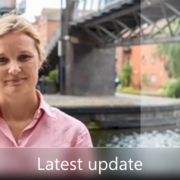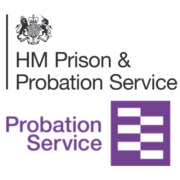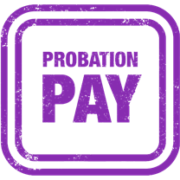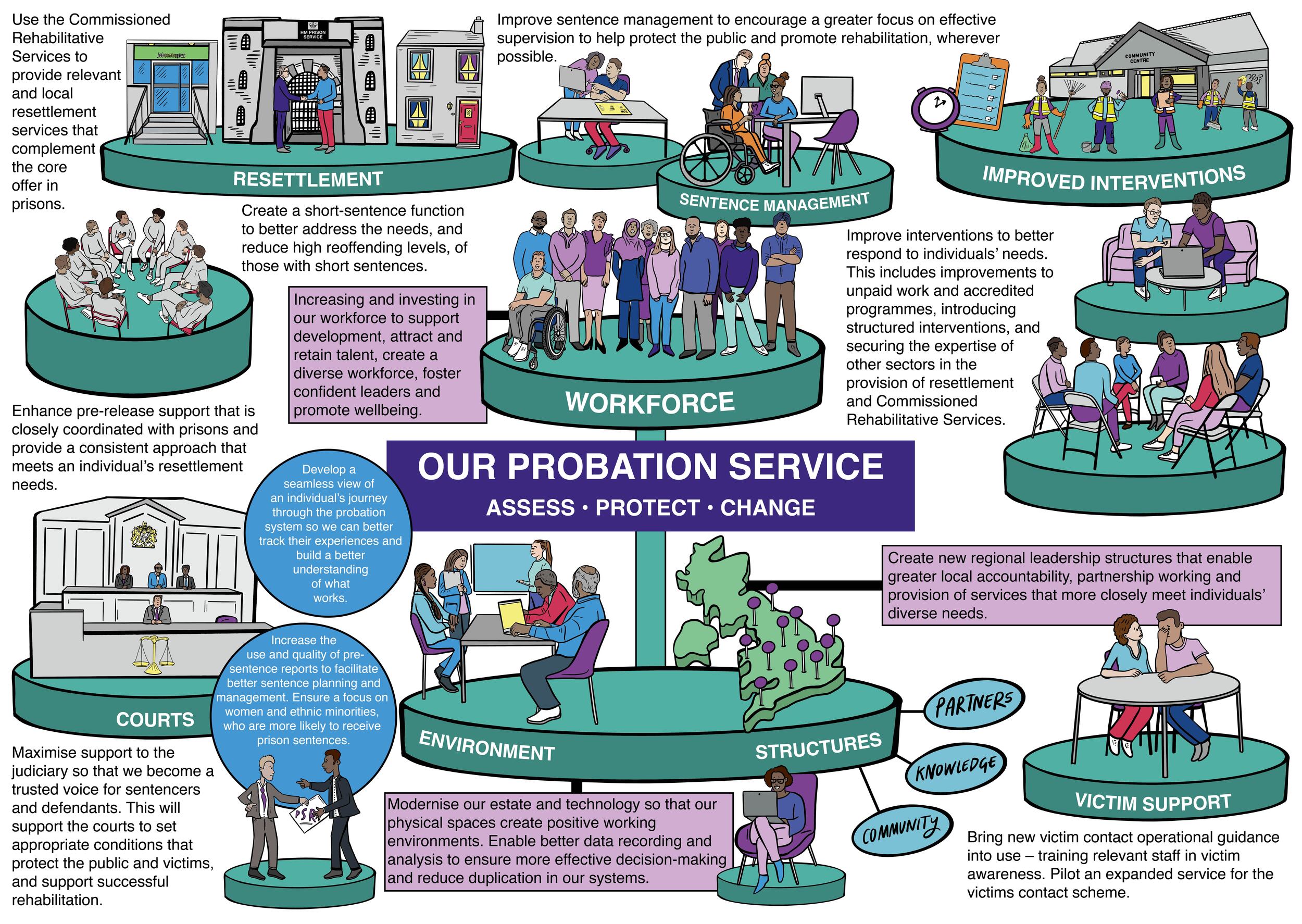Structured Interventions – East Midlands
Structured Interventions
Structured Interventions are part of a suite of interventions that Probation Practitioners can refer people to if they present a low risk of recidivism and/or are unsuitable for an Accredited Programme. Structured Interventions can be delivered in a group setting or on a one-to-one basis, have a set format, and are a minimum of four sessions in length.
Structured Interventions are approved for delivery via the HMPPS Effective Interventions Panel and are assessed against seven core Correctional Services Accreditation Advice Panel (CSAAP) principles.
All regions will deliver a minimum of one Structured Intervention in the need areas set out below. Flexibility on meeting regional needs is also a key factor and delivery of any additional Structured Interventions in the three need areas will be at the discretion of the Regional Probation Director.
For an overview of the Structured Interventions available within each probation region, watch this video.
Structured Interventions: Need Areas
Attitudes, Thinking and Behaviour (ATB)
Attitudes, Thinking and Behaviour Structured Interventions aim to reduce recidivism by focusing on one or more of the following areas:
- making decisions
- solving problems
- achieving their goals
- managing the influence of anti-social relationships
- using pro-social interpersonal skills
These are skills intended to enable participants to overcome challenges and live a purposeful, pro-social lifestyle. Some ATBs will promote these skills within a specified cohort, for example 18-25 year-olds and people with either dangerous driving or drink driving offences.
Available Interventions:
Stepwise Problem Solving
Stepwise Problem Solving is a strengths-based intervention that aims to support desistance by focusing on areas such as:
- making decisions
- solving problems
- achieving life goals
- using pro-social interpersonal skills
Domestic Abuse (DA)
Domestic Abuse Structured Interventions aim to reduce Intimate Partner Violence (IPV) recidivism by focusing on one or more of the following areas:
- Attitudes that support healthy relationships
- Aggression and anger management
- Emotional mismanagement / self-regulation
- Social skills
- Conflict Management Skills
These are skills intended to enable participants to overcome challenges in relationships and live a purposeful, pro-social lifestyle.
Available Interventions:
Stepwise Relationships
Stepwise Relationships is a strengths-based intervention that aims to support desistance from Intimate Partner Violence (IPV) offending by enabling participants to overcome challenges such as:
- relationship problems
- social skills deficits
- attitudes that support relationship violence
- aggression and anger
- emotional mismanagement / self-regulation
Emotional Management (EM)
Emotional Management Structured Interventions are designed to help participants explore and understand their use of violence, and to motivate them towards a violence-free life.
Participants are encouraged to develop and strengthen the resources and protective factors that will support them in reducing the likelihood of using aggressive and / or violent behaviour.
Participants are encouraged to develop realistic and meaningful personal goals that can help them live a more satisfying and pro-social life.
Available Interventions:
Stepwise Emotions
Stepwise Emotions is a strengths-based intervention that aims to support desistance from violent offending by enabling participants to overcome challenges such as:
- aggressive behaviour
- thinking & behaviour related to risk of serious harm to self or others
- attitudes related to risk of serious harm to self or others

 BBR is for adult male perpetrators convicted of an Intimate Partner Violence (IPV) related offence against a female partner, who present with a moderate or high risk of committing future IPV offences.
BBR is for adult male perpetrators convicted of an Intimate Partner Violence (IPV) related offence against a female partner, who present with a moderate or high risk of committing future IPV offences. BBR is comprised of 24 group and 5 individual sessions.
BBR is comprised of 24 group and 5 individual sessions. The Healthy Intervention Programme (HII) is a one-to-one programme that targets the social and psychological drivers of extremist offending. HII is made up of a combination of discussion, reflection, written exercises and skills practices.
The Healthy Intervention Programme (HII) is a one-to-one programme that targets the social and psychological drivers of extremist offending. HII is made up of a combination of discussion, reflection, written exercises and skills practices. NMS has been specifically designed to be responsive to the communication styles and abilities of people with learning disabilities and learning challenges (LDC).
NMS has been specifically designed to be responsive to the communication styles and abilities of people with learning disabilities and learning challenges (LDC).
 iHorizon is a programme for men whose primary clinical need is to address internet only sexual offending, that is, where it is limited to possessing, downloading, and/or distributing indecent images of children, where there has been no contact with victims. Men with convictions involving other forms of sexual or sexually motivated offending will not be suitable for iHorizon and should be assessed for an alternative programme.
iHorizon is a programme for men whose primary clinical need is to address internet only sexual offending, that is, where it is limited to possessing, downloading, and/or distributing indecent images of children, where there has been no contact with victims. Men with convictions involving other forms of sexual or sexually motivated offending will not be suitable for iHorizon and should be assessed for an alternative programme.












